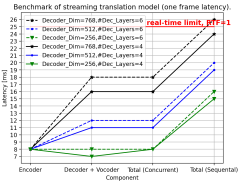Authors: Hongkuan Zhou, Xiangtong Yao, Yuan Meng, Siming Sun, Zhenshan Bing, Kai Huang, Alois Knoll
Published on: December 17, 2023
Impact Score: 8.22
Arxiv code: Arxiv:2312.10807
Summary
- What is new: This study provides a comprehensive overview of the latest advancements in language-conditioned robotic manipulation, a field concerned with enabling robots to understand and execute commands given in natural language.
- Why this is important: The challenge in teaching robots to comprehend and act upon instructions described in natural languages, which requires robust language understanding capabilities.
- What the research proposes: The paper explores various approaches within language-conditioned robotic manipulation, examining learning paradigms such as reinforcement learning, imitation learning, and the integration of foundational models like large language models and vision-language models.
- Results: A detailed comparative analysis of different approaches based on semantic extraction, environment evaluation, auxiliary tasks, and task representation, alongside an outline of future research directions in generalization and safety.
Technical Details
Technological frameworks used: Reinforcement learning, imitation learning, integration of foundational models
Models used: Large language models, vision-language models
Data used: nan
Potential Impact
The insights from this paper have the potential to impact markets involving human-robot interaction, automation, and AI-driven industries, especially those developing or utilizing robotic manipulation technologies.
Want to implement this idea in a business?
We have generated a startup concept here: LinguaBotics.



Leave a Reply